-
Is Your Accident Settlement Offer Too Low?
Even if you have been involved in a previous car accident in the Baltimore area, you may find it overwhelming to deal with the many details of securing compensation. It’s a good idea to speak with an injury lawyer even if you aren’t sure whether you will file an accident injury lawsuit. Your lawyer has plenty of experience dealing with insurance carriers. He or she will help you secure a generous accident settlement.
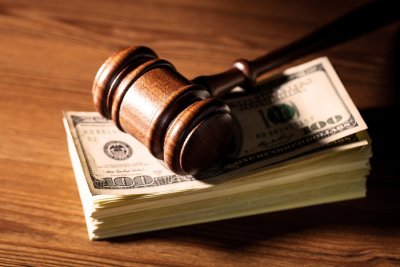
Initial Offer
It’s to be expected that the first accident settlement offer you receive will be the lowest amount that the insurance adjuster is authorized to offer. Insurance is a business and, as with any business, the insurance adjuster’s goal is to improve the company’s bottom line. Unfortunately, far too many car accident survivors take the first offer they get because they’re unaware that it’s negotiable or because they lack negotiating skills. This is another benefit of hiring an injury lawyer; he or she knows the most effective strategies to use to negotiate with the insurance adjuster.
Medical Expenses
Before deciding whether subsequent settlement offers are too low, you’ll need an estimate of your losses. Calculating your losses can be more difficult than you might think, but your lawyer can handle this task for you. The settlement offer should be substantial enough to fully cover your out-of-pocket medical costs such as diagnostic tests, surgeries, hospitalization, physical therapy sessions, and pharmacy co-pays. Depending on the nature and extent of your injuries, you might also require durable medical equipment and perhaps the services of a home health aide when you leave the hospital.
Property Damage
Your vehicle may have sustained minor damage or it might be a total loss; either way, you deserve full compensation for the damage. The settlement offer should be high enough to restore your car to the condition that it was in prior to the crash. If the vehicle was a total loss, your lawyer will ask for a settlement offer that includes the fair market value of the car. Your settlement offer might even include your rental car or other transportation costs that you incurred after the crash. Keep in close contact with your lawyer throughout the process and advise him or her of any new expenses you incur.
-
What Is Occupational Asthma?
Asthma is a chronic, inflammatory condition that affects the airways and causes trouble breathing. Periodically, the inflammation can become significantly worse in a flare-up called an asthma attack. There are different types of asthma, including occupational asthma, which is a disease triggered by a workplace. If your doctor informs you that you have asthma and you suspect your job may be to blame, talk to a workers’ comp attorney in Baltimore right away. Under workers’ comp law , your medical treatment may be covered and you may be entitled to receive additional benefits.
Your workers’ comp lawyer may ask to see your medical records, which might indicate whether you have work-aggravated asthma or true occupational asthma. Work-aggravated asthma refers to pre-existing asthma that is worsened by conditions in the workplace. True occupational asthma originates directly from the workplace. Jobs that require exposure to chemical irritants or sawdust, for example, can irritate the airways. A workers’ comp lawyer can make sure your employer follows all the necessary steps to protect employees, such as implementing a health surveillance program and establishing effective irritant control measures.
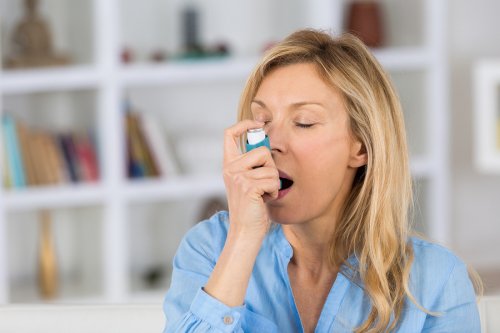
-
Answers to Your FAQs About Workers’ Compensation Claims
Did you know that workers’ compensation is the oldest type of social insurance in the U.S.? In fact, it’s mandatory for employers to provide coverage to employees. If you think you might need to apply for benefits, a workers’ compensation law firm serving Baltimore can give you the answers to all of your questions. Since there are time limits to file a claim, consult a workers’ compensation attorney serving Glen Burnie as soon as possible after you have sustained an injury.
Who Is Eligible for Workers’ Compensation?
Workers’ compensation is not administered on a federal level; the programs vary from state to state. This is one reason why it’s essential to work with a workers’ compensation attorney to ensure you’re eligible for benefits. You could be eligible for benefits if you’re an employee of a company, rather than an independent contractor. If you run a sole proprietorship, your business must purchase workers’ compensation insurance. The same is true if you’re involved in a partnership.

What Types of Injuries are Covered?
Your workers’ compensation attorney will review your medical records and investigate the case to determine if your medical problems are covered. Health conditions must be related to your job for you to receive benefits. In some cases, the connection is clear, such as if you slip and fall at work due to hazardous conditions and sustain a fracture. However, other types of job-related health issues can also be covered, such as carpal tunnel syndrome due to repetitive movements at work or a respiratory infection due to poor air quality.
What Type of Benefits Can I Receive?
Your workers’ comp attorney may file a temporary disability claim or a permanent disability claim on your behalf. If your temporary disability claim is approved, you’ll receive a percentage of your wages while you’re out of work. For example, if you’re unable to work at all on a temporary basis, you’ll receive two-thirds of your average weekly income. If your permanent disability claim is approved, you’ll receive compensation for a set number of weeks. In addition to compensation for lost wages, you can receive compensation for your medical expenses and hospitalization. For example, medications, prosthetic appliances, crutches, and surgery costs could be covered. Your workers’ compensation attorney may also help you obtain vocational rehabilitation benefits, which may consist of vocational assessment, counseling, and job placement.
-
Is COVID 19 better classified as an “accidental personal injury?”
A few weeks ago I wrote a piece discussing whether or not someone who contracts COVID-19 while at work has contracted an “occupational disease” for which he or she could receive workers’ compensation benefits. As I mentioned in that article, COVID-19 presents novel legal questions. In this article, I will consider whether or not COVID-19 is perhaps better-defined as an “accidental personal injury.”
Accidental personal injuries are probably what most people think about when they first think of workers’ compensation. An accidental personal injury is, for the most part, exactly what it sounds like: some injury that a person suffers by chance, while at work. The range of possible accidental personal injuries is endless. Some examples include: straining a muscle while lifting something heavy; suffering a laceration while operating machinery; or breaking a bone by falling from a height. These are some of the typical accidental injuries that arise while people are at work.
The statutory definition of accidental personal injury is found in MD Code Labor and Employment Section 9-101(b):
- Accidental personal injury. — “Accidental personal injury” means:
- an accidental injury that arises out of and in the course of employment;
- an injury caused by a willful or negligent act of a third person directed against a covered employee in the course of the employment of the covered employee; or
- a disease or infection that naturally results from an accidental injury that arises out of and in the course of employment, including:
- an occupational disease; and
- frostbite or sunstroke caused by a weather condition.
At first glance, one might consider subsection (3), which mentions disease or infection, as possibly encompassing COVID-19. However, the plain language of the subsection goes on to state that only diseases or infections that “naturally result from an accidental injury” are to be classified as accidental personal injuries. In other words, the disease or infection must be secondary to some more typical physical injury. An example might be someone at work who suffers a seemingly minor scratch on their hand. If the scratch becomes infected and causes more serious health issues, those issues would be considered an accidental personal injury pursuant to subsection (3).
As I discussed in my prior piece, the traditional concept of an occupational disease is one that develops over a long period of time due to exposure to some workplace condition. While COVID-19 takes a few weeks to “incubate,” that is not really the type of “slow and insidious” development traditionally associated with occupational diseases. Therefore, perhaps it makes more sense to classify COVID-19 infection as an “accidental personal injury.”
Maryland’s highest court, the Court of Appeals, examined the parameters of “accidental personal injury” in the case of Belcher v. T. Rowe Price, 329 Md. 709 (1993). That case involved a woman who was sitting at her desk when a huge construction beam came crashing through the ceiling very close to her. Thankfully, she was not physically harmed, but she suffered significant psychological effects from this frightening and traumatic experience. A full discussion of this case is not on point for this article, because COVID-19 is of course a physical illness, not a psychological one. However, the case is relevant because the Court examined in depth the definition of what constitutes an “accidental personal injury.”
The Court wrote: “…[T]he physical injury need not be caused by physical impact or harm directly to the body but may be the result of a nervous shock. Furthermore, the injury need not be externally apparent, but may be to the internal structure of the body, as for example, cerebral hemorrhage, apoplexy, heart failure or paralysis. The symptoms of injury need not be immediately apparent but may follow the accident by some lapse of time.”
I believe that the Court’s analysis in Belcher provides for the possibility of defining COVID-19 as an accidental personal injury. The physical injuries arising out of COVID-19 are not due to an immediately traumatic experience at the macro level, such as a twisted ankle or broken bone. However, there is some physical interaction that occurs whereby the virus cells interact with and infect the host’s lung cells. This is certainly more than a mere “nervous shock” and should be considered a “physical injury.”
Secondly, the damage caused by COVID-19 is to the “internal structure” of the body, which again is allowable pursuant to the Belcher analysis of accidental personal injuries.
Finally, the symptoms of COVID-19 may not arise immediately, but only after some period of incubation. This factor as well does not appear to be problematic according to the language from Belcher that I quoted above.
All in all, I think there are arguments to be made, based on the statutory definitions and case law, that COVID-19 can constitute an occupational disease, an accidental personal injury, or both. It remains to be seen how the Workers’ Compensation Commission and the courts of Maryland define the disease.
Please feel free to call us at 4107870022 if you have any questions about COVID-19 as it pertains to a possible workers’ compensation claim, or any other question related to workers’ compensation in Maryland.
- Accidental personal injury. — “Accidental personal injury” means:
-
What to Do If You’re Injured at Work
Employees are afforded certain legal protections, such as the right to receive compensation if they become injured while on the job. However, for your claim to be successful, you must follow your state’s workers’ compensation guidelines. Since the guidelines vary from state to state, you should contact a workers’ compensation attorney as soon as possible. A workers’ compensation attorney near Baltimore can help you receive maximum compensation so that you can focus on your recovery.
Seek Medical Help
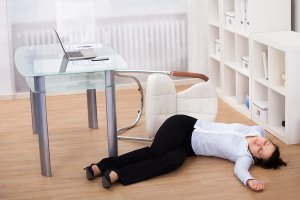
After suffering a workplace injury, the most important step to take is to see a doctor as soon as possible. For certain types of workplace injuries, you may need an ambulance to take you to the nearest emergency room. For example, if you’ve been working with machinery and suffer a deep laceration or amputation, it’s necessary to call 911 promptly. Otherwise, you can inform your employer that you need to leave work early to receive medical attention for an injury sustained at the workplace. Even if your injury seems minor at first, it’s best to go to a doctor sooner, rather than later. This establishes a record of your injury, which your workers’ compensation attorney can use to back up your claim.
Provide Written Notification
You may be legally required to provide written notification to your employer within a certain period of time following the injury. If you do not follow your state’s guidelines, your workers’ compensation claim may be denied. Talk to an attorney at law in Glen Burnie about workers’ compensation guidelines in Maryland. Generally, written notification must include information pertaining to when the injury occurred, what type of injury it was, and how it developed.
Request Workers’ Compensation
After notifying your employer of the accident, your workers’ comp attorney can help you file a request for workers’ compensation. Deadlines generally apply to these types of claims. Your attorney can assist you by ensuring that the paperwork is in order and that you’ve attached any necessary documentation, such as your medical records. Your attorney can also provide representation at a workers’ compensation hearing if you are required to attend one.
-
Is COVID-19 a compensable “occupational disease” under the law of Workers’ Compensation in Maryland?
The current COVID-19 pandemic is obviously an unprecedented public health crisis in American society. Numerous industries and organizations, including the legal community, are facing uncharted questions and challenges.
I’d like to examine one such question that is relevant to my particular area of legal practice, Workers’ Compensation in Maryland: whether someone who is deemed an “essential employee” and required to go into work during the pandemic, and who then contracts COVID-19, can file for workers’ compensation benefits?
Maryland’s workers’ compensation laws are in place to ensure that when someone is injured or becomes ill on the job, the worker and/or their families receive certain benefits in order to maintain financial and medical well-being. Those benefits include temporary total disability (TTD), which is a payment of two thirds of the worker’s average weekly wage for the time the worker is completely unable to work due to occupational accident or illness. Workers are also entitled to coverage of all medical expenses directly related to the occupational injury/illness by the employer’s workers’ compensation insurance. Additionally, permanent partial disability (PPD) benefits are sometimes available to compensate workers who suffer some degree of lasting negative consequences as a result of occupational illness or injury. There are other benefits as well, but these are some of the main ones.
MD Code Labor and Employment Section 5-101 defines an occupational disease as one that is “contracted by a covered employee: (1) as the result of and in the course of employment; and (2) that causes the covered employee to become temporarily or permanently, partially or totally incapacitated.”
However, the Employer/Insurer’s liability is limited by Md. Code Labor and Employment Section 9-502(d) which states compensation must only be paid if:
(1) the occupational disease that caused the death or disability:
(i) is due to the nature of an employment in which hazards of the occupational disease exist and the covered employee was employed before the date of disablement; or
(ii) has manifestations that are consistent with those known to result from exposure to a biological, chemical, or physical agent that is attributable to the type of employment in which the covered employee was employed before the date of disablement; and(2) on the weight of the evidence, it reasonably may be concluded that the occupational disease was incurred as a result of the employment of the covered employee.
In 2019, Maryland’s highest court, the Court of Appeals, had a chance to examine the concept of “occupational disease” in the case of Baltimore County v. Quinlan, 466 Md. 1. That case involved a firefighter/paramedic who had developed degenerative tears in his meniscus. The case highlighted that usually an occupational disease is one that develops gradually over time as a result of conditions in the workplace. Some examples might be asbestosis or carpal tunnel syndrome. One of the questions in Quinlan was whether the claimant’s degenerative knee condition fell into the category of a compensable occupational disease. Ultimately, the Court determined that Mr. Quinlan’s knee condition was an occupational disease for which he was entitled to workers’ compensation benefits.
The Court highlighted a two-part test (with the second part divided into two sub-parts) for determining the compensability of occupational diseases. The first part involves an examination of the professional tasks of the specific employee in question. The second prong of the test involves an examination of whether: “(a) the ‘nature’ of the employment includes the hazards of the ailment the employee suffers from to a greater degree than that present in general employment; and (b) whether the employee’s job functions expose the employee to those hazards.’” The Court examined prior Maryland cases which demonstrate that courts are to look at the specific “risk factors” to which a given worker is exposed and which may give rise to an occupational disease.
The Court took into account various factors in determining that Mr. Quinlan’s knee condition was a compensable occupational disease. For example, the Court looked with favor on expert testimony in the record that firefighters/paramedics have a higher statistical likelihood of developing meniscal tears. The Court also highlighted that occupational diseases usually require some level of “repetitive” behavior over time which gives the disease a chance to develop on the job. Furthermore, the occupational disease has to arise out of conditions which are normal and natural to the employee’s job duties.
What does this mean in regards to COVID-19 and essential workers? I believe that, in light of the statute and case law discussed above, many essential workers in Maryland who are still showing up to work during the pandemic, and who contract COVID-19, will have strong arguments that their disease is a compensable “occupational disease.” Workers will have to describe for a Commissioner their specific job duties, and how doing those duties in the midst of a highly infectious pandemic could naturally give rise to the contraction of COVID-19. Workers will want to be as specific as possible in describing their job duties during the pandemic, and in showing why it is more likely than not that they contracted the disease at work as opposed to elsewhere. In line with Quinlan, if a worker can find statistical data showing that their profession has a higher risk of infection than others, this would be helpful.
Obviously, it seems that hospital workers and other healthcare workers who are exposed to COVID-19 patients have the strongest argument for compensability. However, I think that the statute and Quinlan provide an avenue for compensability for other essential workers as well. For example, grocery store checkout clerks. Their specific job duties entail standing face to face with hundreds of customers for several hours each day, and directly exchanging food and money between those individuals. This repetitive job duty certainly seems to give rise to the hazard of contracting COVID-19, especially if the grocery store worker can establish that during their non-working hours they remained isolated and at home. Nursing home employees and correctional officers also come to mind as classes of employees who could have strong claims for compensability when it comes to COVID-19.
Ultimately, the question of the compensability of COVID-19 as a compensable “occupational disease” in Maryland is a novel one, and does not fit neatly into the previously recognized classes of occupational disease. However, the statute and case law certainly at least allow for the possibility that COVID-19 is a compensable disease.
If you or someone you know contracted COVID-19 during the pandemic and you believe the disease is work-related, please contact attorneys Jack Schmerling, Esq. and Ilan Roth, Esq. at 410 787 0022.
-
Steps to Take After a Car Accident
Every 14 seconds, someone is injured in an auto accident. With so many car crashes happening every day, it’s important for drivers to be prepared and to know what to do after an accident. If you are in an auto accident, remember to take the following steps and consult an experienced car accident lawyer in Anne Arundel County.
Put Safety First
Immediately after an accident, move the cars to the side of the road and away from traffic to prevent further accidents or injuries. If the vehicles cannot be moved, everyone should stay in their cars with their seatbelts fastened while waiting for help to arrive. If you or your passengers have been injured, seek medical assistance right away. Keep all of your medical records so that an accident attorney can help you receive full compensation for your personal injury.
Exchange Information
Record the name, address, phone number, driver’s license number, license plate number, the insurance company, and policy number of the other driver and owner of the vehicle. You will also want to write down the year, make, model, and color of all vehicles involved. If there were witnesses to the accident, get their contact information as well.
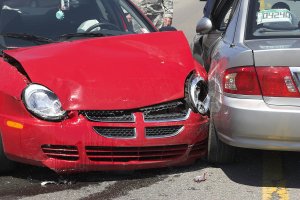
Document the Accident
Take photographs of the vehicles, damage caused the location, and any relevant traffic signs or signals. You will also want to file an accident report with the police if no officers arrived on the scene. By creating a complete picture of the collision and how it happened, you can improve your insurance claim and strengthen your case with a car accident lawyer.
Contact Your Insurance Company
It’s important to notify your insurance company right away about any accidents so that you can file your claim properly and receive full compensation. You may also need information about what your policy does and does not cover after an accident, like costs for towing or a rental car.
Hire a Car Accident Attorney
An attorney with a car accident law firm can help you recover the costs of medical bills, car repairs, and missed work. If you suffered an injury due to another driver’s negligence, you will want an experienced lawyer to act as your legal advocate when going up against the other party for compensation. Your accident attorney can also negotiate a fair settlement with your insurance company and will offer full support while you recover.
-
What Are the Most Common Workplace Injuries?
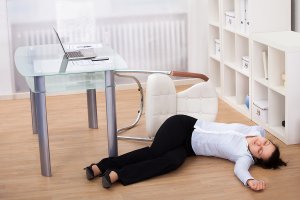
Millions of workplace injuries occur each year in the U.S. Even if you follow all safety protocols, you could be injured while on the job due to circumstances beyond your control. If you suffer a workplace injury, you may be entitled to compensation from your employer. Workers’ compensation law firms serving Baltimore have experience seeking compensation for all types of workplace injuries, including the following.
Overexertion and Bodily Reaction Injuries
Overexertion and bodily reaction are consistently the top causes of workplace injury. Overexertion injuries may be caused by lifting, pushing, pulling, throwing, holding, or carrying motions. Musculoskeletal injuries are often sustained and commonly affect the back, shoulders, knees, ankles, or multiple body parts at once. For example, a nurse may strain her back while lifting a patient. Bodily reaction injuries occur when a worker slips or trips but does not fall, which can cause muscle injuries and trauma.
Slip-and-fall Injuries
A worker may slip on a wet floor, trip over an object on the ground, or fall from a height, such as from a ladder, roof, stairway, or platform. Faulty equipment or machinery may be to blame for some falls. As a workers’ compensation attorney will attest, these types of injuries are incredibly common.
Injuries Caused by Equipment or Objects
Factory workers and those who operate heavy equipment are at risk of being struck by, entangled in, or otherwise harmed by machinery. Numerous workplace injuries are also caused by falling objects, such as a tool being dropped from above. Such accidents commonly result in serious head injuries, which may necessitate filing a temporary or permanent disability claim with the help of a workers’ compensation lawyer.
Violence-related Injuries
Police officers are often injured by violent acts while in the line of duty. Even office politics and arguments have been known to escalate into attacks that cause injury.
Transportation Accident Injuries
Employees who drive for business purposes, whether in company cars or their own vehicles, are often involved in auto accidents. If a behind-the-wheel injury was sustained while on the clock, a workers’ compensation attorney can help the victim receive adequate compensation to cover medical bills and days away from work.
-
Get to Know Attorney Jack Schmerling
If you need expert legal guidance, look no further than Jack Schmerling, Attorney at Law. With more than 35 years of experience representing the rights of his clients, Mr. Schmerling understands the legal strategies that will secure a favorable outcome for your case. This personal injury attorney began his distinguished career after obtaining his Juris Doctor from California Western School
of Law. In addition to providing exceptional legal representation for his clients, Mr. Schmerling has remained dedicated to ongoing professional development. He has frequently been asked to give lectures for the Maryland Workers’ Compensation Education Association, the Maryland Association for Justice, and other notable organizations. As an accomplished personal injury attorney, he has also been asked on numerous occasions to testify as an expert regarding workers’ compensation cases.
Along with specializing in handling workers’ compensation cases, Mr. Schmerling takes great pride in helping those who are involved in DWI and traffic cases, in addition to personal injury claims and Social Security disability claims. As the founding member and sole attorney at his personal injury law firm located in Baltimore, Mr. Schmerling takes the time to provide personalized attention and service to each of his clients.

Below is the list of services we provide:
- Workers’ Compensation: Injuries at work may include exposure to harmful substances or other physical injuries. I can help you file your claim and receive proper compensation.
- Auto Accidents: Insurance companies can be a hassle to deal with. If you’ve been involved in an auto accident, allow me to assist you with the legal matters.
- Social Security Disability: If you are unsure about the social security benefits you qualify for, I can help you. I can help determine if you qualify for social security income.
- Personal Injury: Whether you are suffering from a sore neck, broken bone, or other injury caused by someone’s negligence, I can help you get the compensation you deserve.
- DUI/DWI: Drunk driving is not something to be dealt with lightly. I want you to be informed of your rights and receive a positive outcome for your case.
Contact me today at (443) 354-4107 to receive a free initial consultation.
-
What Are the Consequences of Getting a DUI?
Everyone makes mistakes from time to time. However, the consequences of making a mistake as severe as drunk driving can have lifelong implications. If you’ve been charged with a DUI, you should contact a DUI lawyer near Baltimore promptly. Police officers and prosecutors treat DUI cases very seriously and typically seek the maximum penalties for offenders. A DUI lawyer in Glen Burnie can negotiate for a reduction of charges and lessened penalties to help you get back on your feet quickly.
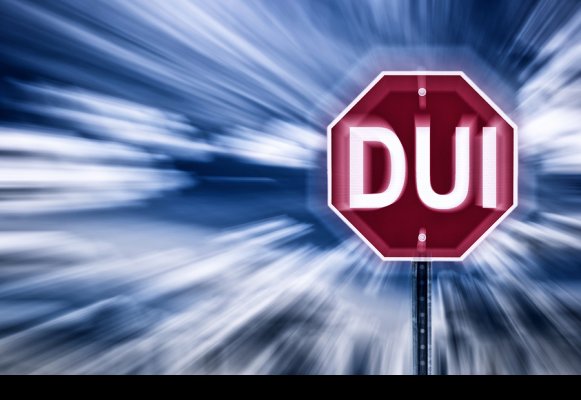
Jail Time
When you consult a DUI attorney, he or she can help you understand the potential penalties involved with a conviction. In Maryland, first-time DUI offenders may be sentenced to up to a year in jail. For a second offense, you’ll face a mandatory five-day sentence. However, that’s only the minimum jail term. You could be sentenced to up to two years. If you’re convicted of a third DUI offense, you’ll face up to three years behind bars.
Fines
When you consult a DUI law firm, one of your primary concerns may be the high cost of a DUI conviction. As your DUI attorney can explain to you, the court may impose certain fines on you if you’re convicted. For example, a first-time offender may be ordered to pay up to $1,000; a second-time offender up to $2,000; and a third-time offender up to $3,000. However, there are many other costs related to a DUI conviction, such as higher insurance premiums, alcohol counseling costs, and license reinstatement fees—to name just a few.
License Revocation
Your DUI attorney will fight against the possible revocation of your license. However, if you’re convicted, it’s entirely possible that you’ll lose your license for a period of time. First-time offenders can have their license revoked for six months and have 12 points on their license. For a second conviction, you could lose your license for a year, followed by a period of time with an ignition interlock device. A third DUI conviction in Maryland involves the revocation of your driver’s license for 18 months.
RECENT POSTS
categories
- Uncategorized
- Worker's Compensation
- Attorney Fees
- Auto Accident Injury Whiplash
- Attorney Review
- Personal Injury
- Social Security Disability
- DUI
- Workplace Injuries
- Auto Accident
- Workers Compensation Claims
- Permanent Disability
- Infographic
- Drunk Driving
- Wrongful Death
- Works in Maryland
- Uninsured Motorists
- Motorcycle Crashes
